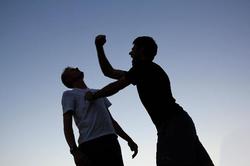
If someone attacks you with deadly force, you can use deadly force in response. If someone attacks you with non-deadly force, you can only use non-deadly force to defend yourself. If you go beyond the amount of force necessary to defend yourself, you can be charged with a crime. Also, if you start a fight with the intent to later use deadly force, you cannot then claim self-defense.
This is called reasonable self-defense or complete self-defense or perfect self-defense, and it is a complete defense to a crime. If you kill in self-defense, that is a justifiable homicide - the killing was justified by the victim's deadly attack of you.
So, what is imperfect self-defense? Imperfect self-defense is when you kill in what you honestly believe is the need to protect yourself with deadly force, but your belief is unreasonable. In that case, you can be convicted of voluntary manslaughter, not murder. But because your belief in the need for self-defense was unreasonable, this is not a complete defense, like reasonable self-defense.
An example of imperfect self-defense would be if someone pointed a bright blue water gun at you, and you honestly believed it was a real gun and that the person was about to shoot you. If you killed that person in response, your belief in the need for self-defense would have been honest but unreasonable. Because your belief was unreasonable, you would be guilty of voluntary manslaughter under a theory of imperfect self-defense.
If, however, the person's toy gun was a realistic-looking toy, your belief would probably be considered reasonable, and your action in killing that person would be justified as self-defense.
Of course, there could be other circumstances - such as who the other person was, how they were acting, or how dark it was - that might make your belief in either of these scenarios more or less reasonable.
For more on this topic, check out my article on the difference between murder and manslaughter.
Also, make sure to sign up for your FREE Writer's Guide revealing the Top 7 Mistakes Made by Writers of Crime, Mystery, and Legal Drama.
 RSS Feed
RSS Feed
